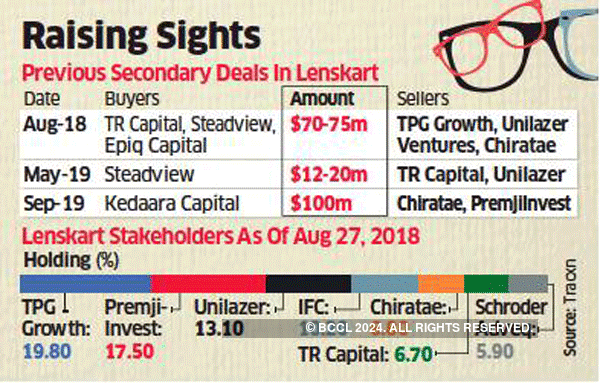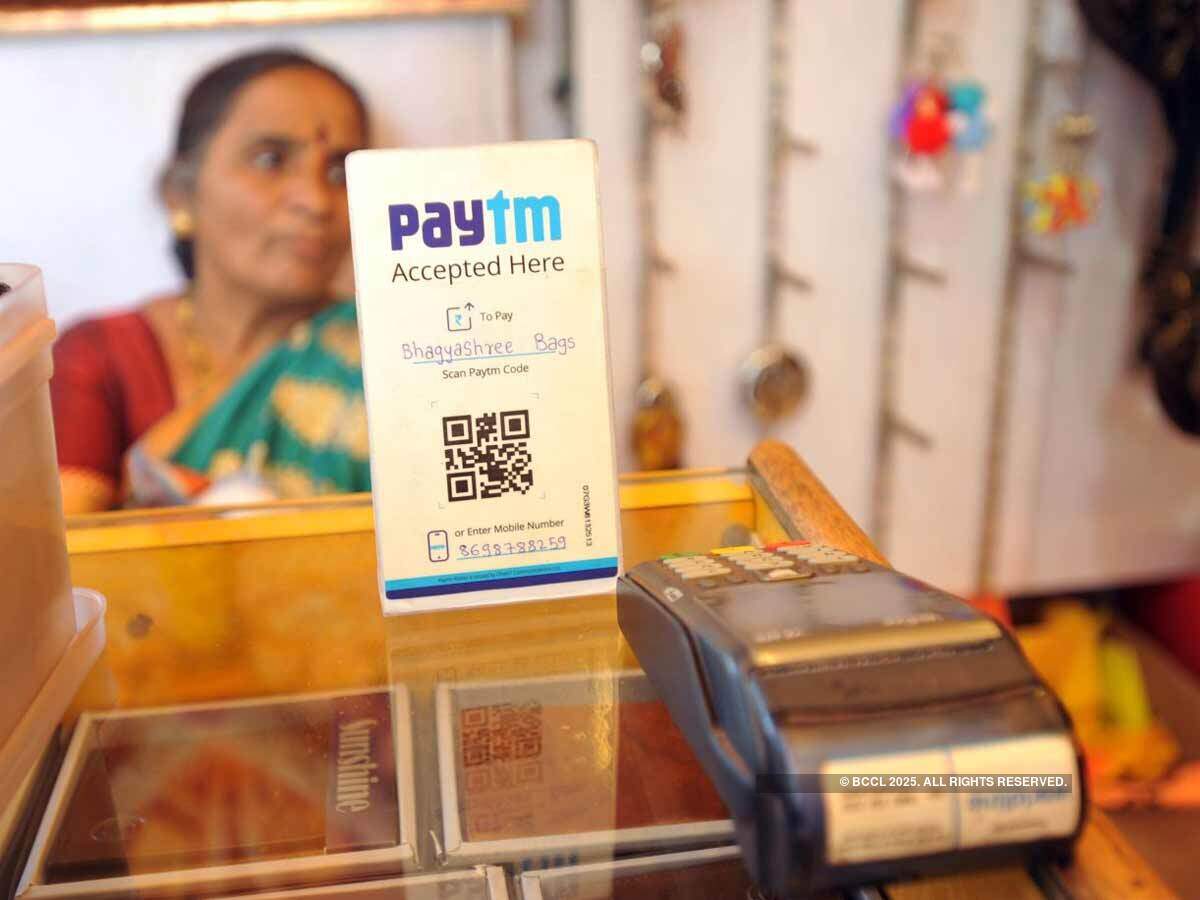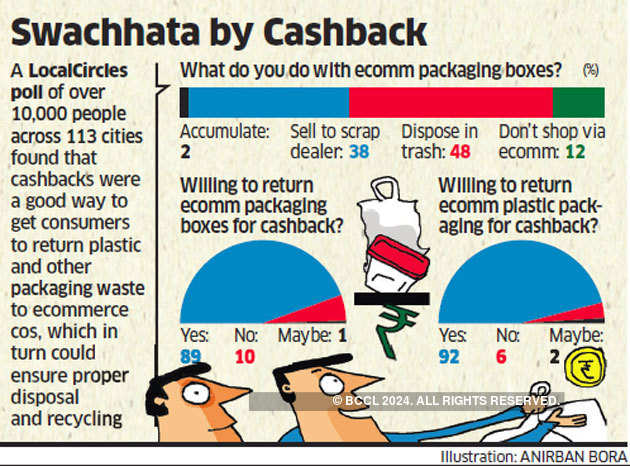Kedaara Capital is in talks to buy shares in omni-channel eyewear retailer
Lenskartthrough a secondary deal, valuing the company at $1 billion, two people familiar with the matter said.
Existing investors PremjiInvest and
Chiratae Ventures are among those likely to partially liquidate their holdings, sources close to the deal said.
This will be the first investment by Kedaara, a homegrown private
equity company, in the consumer internet sector, and comes at a time when some big private equity companies have sensed opportunities in the space.
For Lenskart, this will mark a significant jump from its previous valuation of $460-470 million, and it will be latest to join the Unicorn club of privately held firms valued at $1billion or more. Lenskart is also in discussions with SoftBank Vision Fund, as ET reported on May 27, for a primary infusion, a financing round of around $300-350 million.
“The secondary deal, which is expected to be in the range of at least $100 million, has more than doubled Lenskart’s valuation compared to its previous round,” said a person aware of the details.
News portal VCCircle reported on August 29 that Kedaara would invest in Lenskart via a secondary transaction.
Traditional PE Firms InterestedA secondary sale takes place when an existing investor sells shares to a new one and the money does not come into the company’s books.
Lenskart, Kedaara Capital, PremjiInvest and Chiratae Ventures did not respond to ET’s email seeking comment until the time of going to print.
Kedaara, an investor in retail chain Vishal Mega Mart, Mahindra Logistics and AU Small Finance Bank, manages more than $1.3 billion in assets and has so far stayed away from backing new-age internet companies.
Lenskart, which has a reach across small towns, has seen interest from traditional private equity firms. Earlier, Carlyle Group discussed an investment in the company, which ET reported in May, but the talks fell through as the PE firm proposed a valuation of about $700 million, much lower than the company’s expectations.
Kedaara, founded in 2011 by former Temasek India head Manish Kejriwal and former General Atlantic senior executives Sunish Sharma and Nishant Sharma, is currently investing from its second fund — the $750-million Kedaara Capital Fund-II.
 SECONDARY DEALS AT LENSKART
SECONDARY DEALS AT LENSKARTLenskart has seen a stream of secondary transactions over the past few years. In May, Steadview Capital executed a secondary investment of $12-20 million, picking up stakes from Ronnie Screwvala and TR Capital, and now owns about 9-9.5% in the company.
Last year, Steadview invested $30-35 million for a stake of about 5%.
Prior to that, Steadview and TR Capital, also an existing investor, had undertaken an estimated $70-75 million secondary buyout, which also saw the entry of investment firm Epiq Capital as a Lenskart investor.
Among the selling shareholders, Chiratae Ventures has consistently cut its stake in Lenskart.
The VC firm, sources said, earned about $50 million in one of the secondary deals last year. Chiratae Ventures and PremjiInvest hold 6.8% and 17.5% stake, respectively, in the company.
Lenskart has emerged as one of India’s top brands in the organised eyewear category in the face of stiff competition from established offline brands such as the Tata Groupowned Titan Eyeplus. The company plans to set up 2,000 stores in India over the next five years.
The Delhi-based company founded by Peyush Bansal and Amit Chaudhary is now going global with the launch of its operations in Singapore. It aims to deepen its footprint in the island nation before venturing into other overseas markets.
For the fiscal year ended March 31, 2018, Lenskart posted a loss of ?118.04 crore, a 55% drop from financial year 2016-17, when its loss was ? 262.87 crore, according to documents filed with the Registrar of Companies, accessed by business intelligence platform Tofler.
 New Delhi: Paytm Money, the wholly-owned subsidiary of One97 Communicationsthat operates Paytm, on Monday said it has elevated Pravin Jadhav as Managing Director and chief executive officer, and also plans to invest Rs 250 crore over the next two years.
New Delhi: Paytm Money, the wholly-owned subsidiary of One97 Communicationsthat operates Paytm, on Monday said it has elevated Pravin Jadhav as Managing Director and chief executive officer, and also plans to invest Rs 250 crore over the next two years. 


 BENGALURU:
BENGALURU:

 NEW DELHI
NEW DELHI